A cookbook on Nepali cuisine explores the composite culture and social fabric of various ethnicities through food
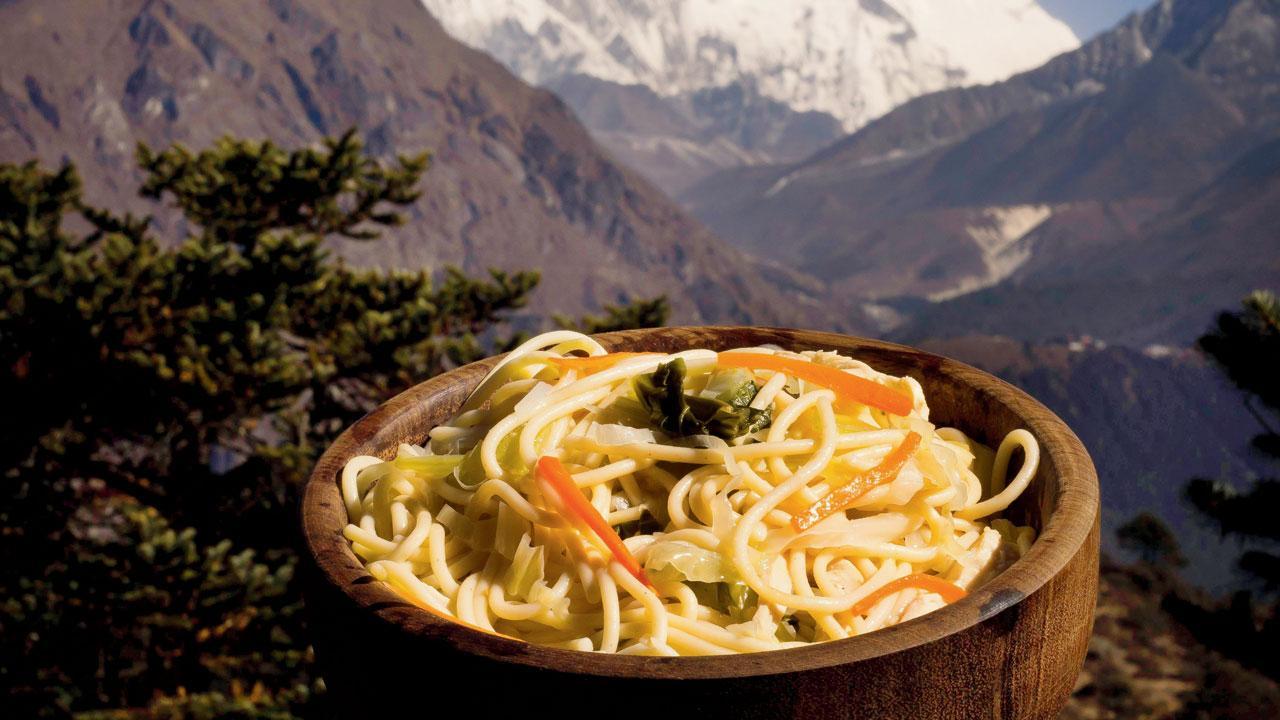
The Sherpa community’s Thukpa is made out of thin rice noodles and minced meat. It is also spicier than other versions
As a prevalent habit, one often homogenises countries, culture, food and people. Nepalese cuisine, with fermented foods, hand-rolled noodles, steamed ingredients, flavourful meats, and mountain cuisine never fits into a box. For instance, this writer has sampled desi Chinese at street stalls, helmed by Nepali chefs and has been partial to their thukpas and momos, made on special request at midnight.
However, another memory comes to mind—that of her housing society in Mumbai Central secured by a Nepali watchman. Every Sunday, an inescapable smell rose from the back of the building compound as he would slow roast the head of a goat over a fire fuelled by coal and wood. Khasi ko tauko, or goat head curry, a speciality among Nepali security personnel. The delicacy is now dead, with the number of Nepali watchmen reduced almost to nil.
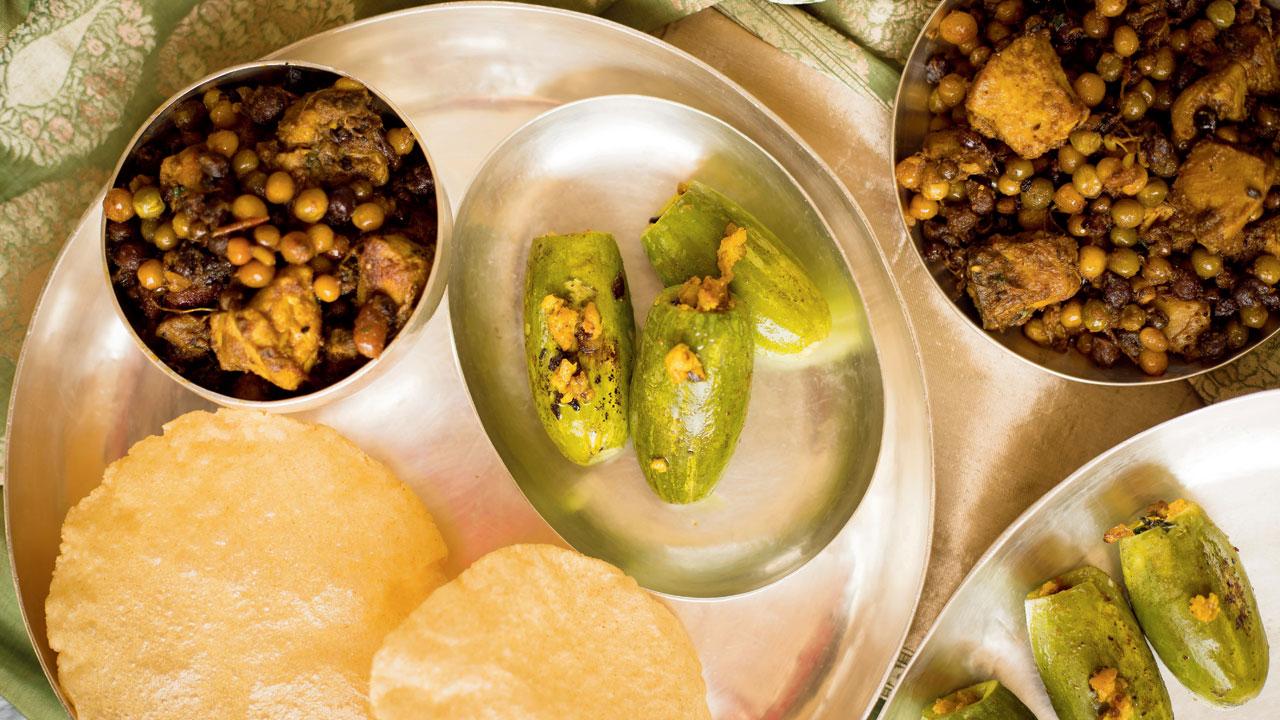
The Bahun Chetri people cook wheat and maize with beans/veggies
Holding on to this memory, we picked author Rohini Rana’s recently released The Nepal Cook Book (Penguin Random House, Rs 1,999) to see if we could find that recipe. In 2021, The author had previously written The Rana Cookbook: Recipes from the Palaces of Nepal. Though we didn’t see a mention of the goat head curry, we did find the book fascinating in its approach. Divided laterally into the Himalayan mountainous region from northwest to northeast Nepal, it explores the cuisines of Sherpa and Thakali communities/tribes. It then moves on to lower mountain ranges and hilly areas inhabited by communities such as Thakuri, Khas, and Bahun Chetris in western Nepal and finally to west Nepal, moving to the midsection and then towards the east.
The third and final region of the book and its related recipes is the region of Terai, where communities such as the Tharus in the west, Madeshis in the mid-Terai section, and the Bhojpuris and Mithila Madeshis in the east, who share similarities due to the history. Rana, who is the daughter of Raja Saheb Digvijay Pal Singh and Rani Saheba Anant Kumari of Awagarh, Uttar Pradesh, tells us, “The book is divided into regions to show the variety of the country’s cuisine. People might know some popular dishes but might not know their history.
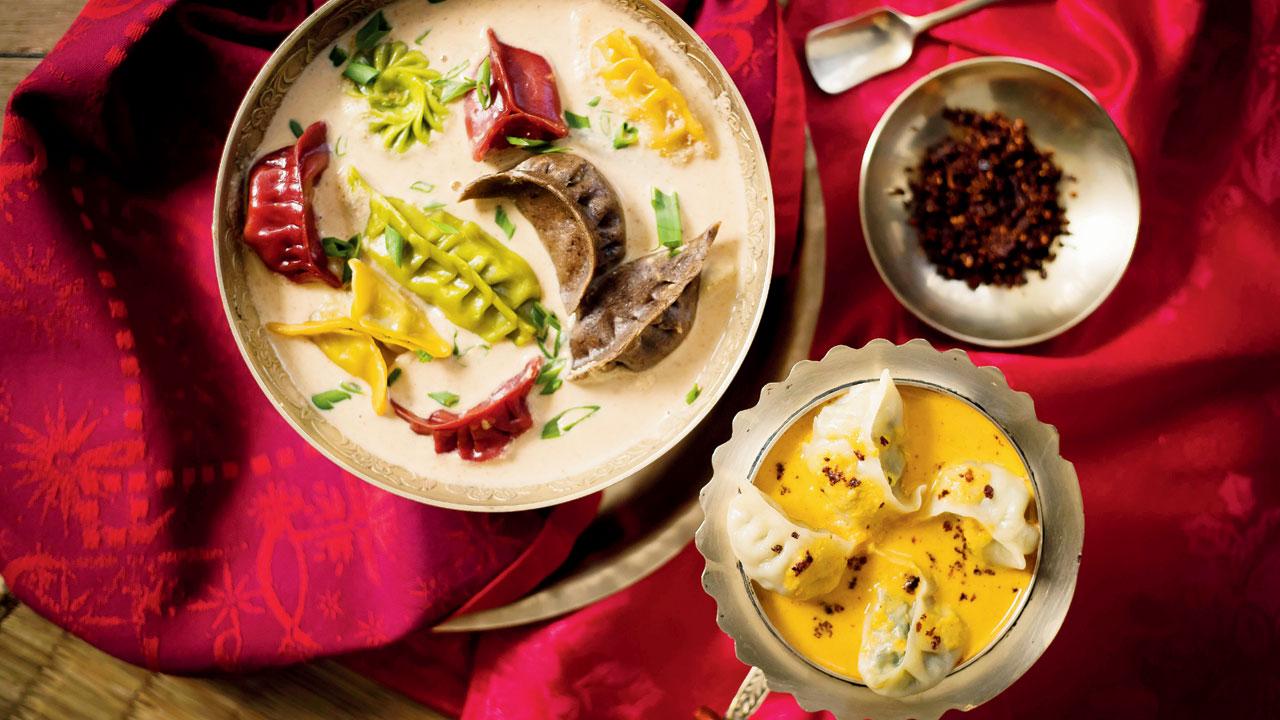
Jhol momos are served in sauce made of soy beans , sesame and peanuts
In 1977, she married Lt Gaurav S.J.B. Rana, who later became the Chief of Army Staff, Nepal Army (2012–2015). She fell in love with her new home’s kitchen, where her husband’s nanny, Chiniya Champa didi, initiated her into Rana cuisine. “Until then, I had no idea about Nepalese cuisine’s variety and depth,” she confesses. “People in the mountainous region of a certain tribe or culture would eat a certain kind of food while those from the flatlands have a very different palate.”
The book is a visual artistry of motifs, typography, and design with 108 recipes, each accompanied by stunning photographs. We asked her favourites, and she speaks fondly of the simple fix, aloo chuk. It was the first dish she learnt in Rana cuisine. “It may sound like a simple snack, but the flavours just explode in your mouth,” she says. “I was aware of another version of the dish back home, but this flavour and memory stays with me till today.”
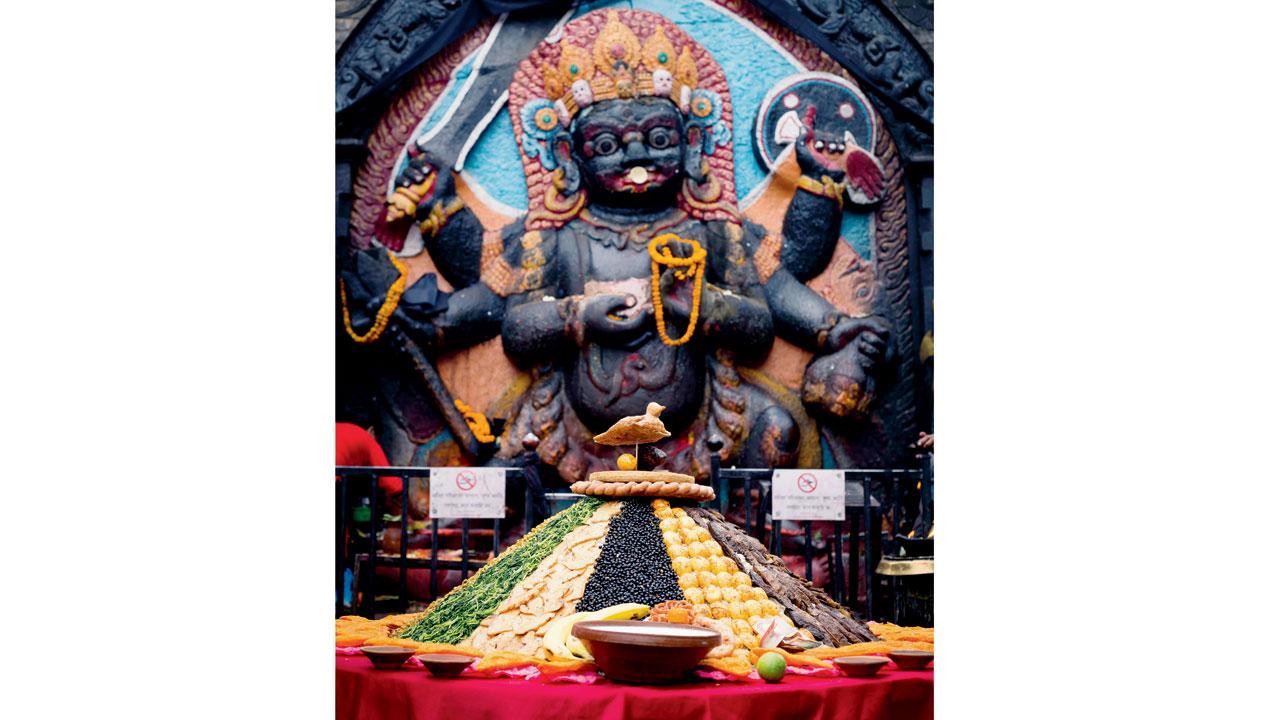
Newari community’s honour gods with lentils and rice
The book starts with Sherpas, arguably the most recognised Nepali community and their shyakpa or thukpa, a soup we are familiar with. It’s various variations are spread over the North East Himalayan states of India too. The thukpa mentioned in the book is made with thin noodles, chopped vegetables and soup. Rana simplified the recipe to make it less intimidating for non Nepalis.
An intro to each section includes a deep dive into each region’s rich tapestry of culture and history—making the book a must-have for those who wish to know more about one of the world’s healthiest cuisines.
Aloo chuk
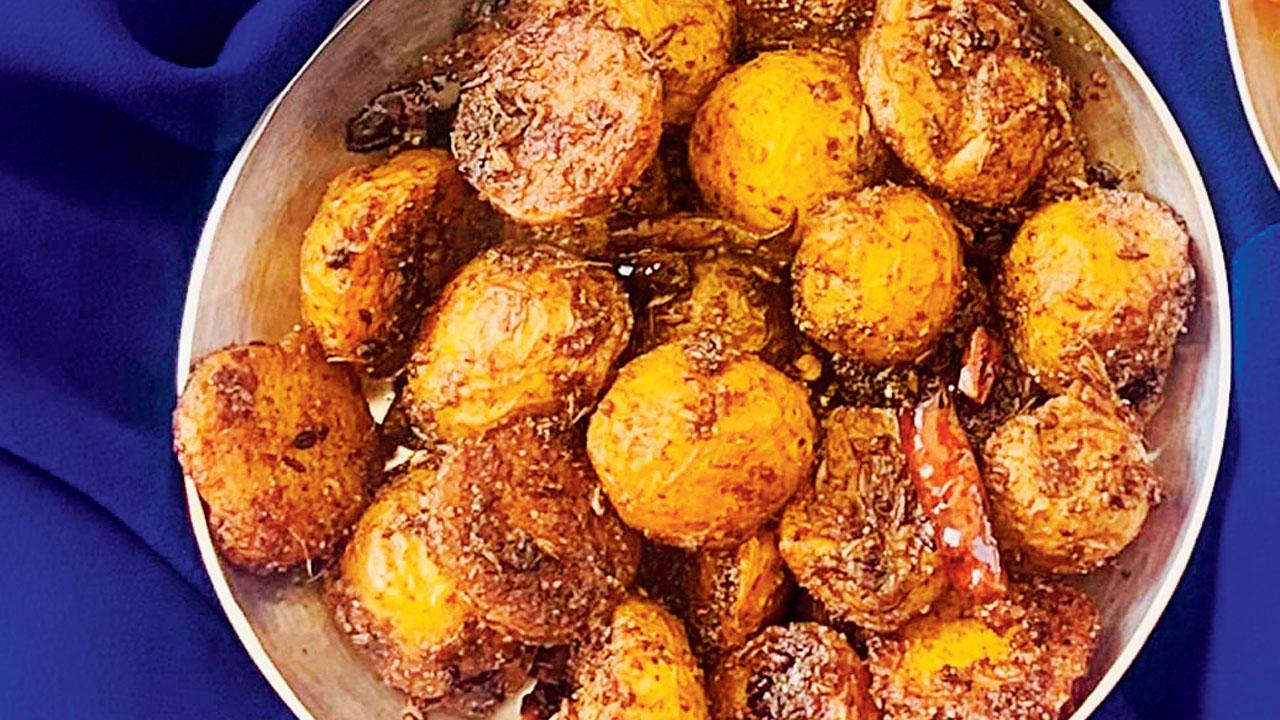
Ingredients
1/2 kg small potatoes
1/2 cup mustard oil/ghee
6 red chillies halved
1/2 tsp cumin
1/2 tsp fenugreek seeds
1/2 tsp turmeric powder
1 tsp red chilli powder
1 tsp cumin powder
1/4 tsp timur powder
1 tbsp ginger
2 tbsp chuk amilo (lemon concentrate)
Salt to taste
Method
Wash the potatoes well and retain the skin. Cut them in half and parboil with a pinch of salt. Drain and keep aside. Heat oil till it smokes, add chilli, fenugreek and cumin seeds and cook till they splutter and change colour. Add the potatoes and sprinkle salt and turmeric powder on top. Now mix it all together, and keep stirring till the potatoes turn crisp and golden. Dissolve ginger paste, red chilli and cumin powder in one-fourth cup of water, pour over the potatoes and keep stirring till crisp and golden. If necessary, add one tablespoon of oil to make the potatoes even more crispy. Add the timur powder and chuk amilo; the potatoes should change colour to a dark brown. Garnish with chopped coriander and serve hot.
Kinema
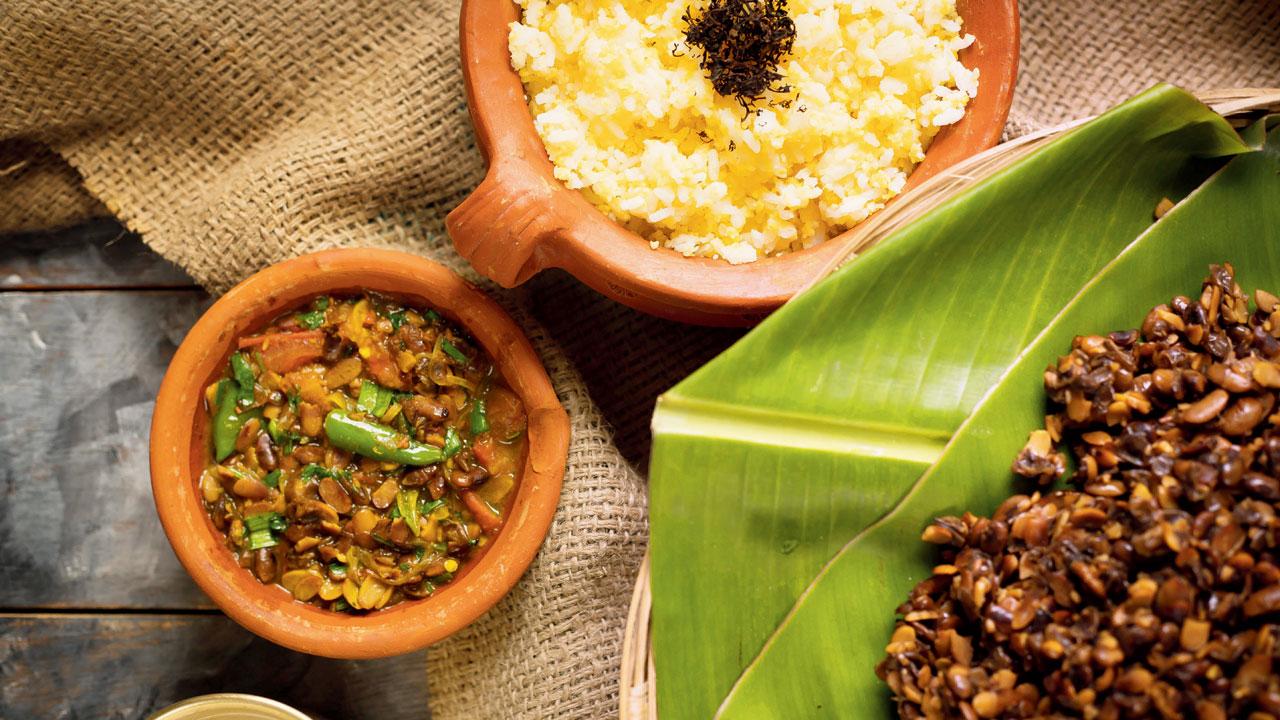
Ingredients
1/2 kg dry soya beans
1 tbsp mustard oil
2 green chillies
1/2 cup sliced onions
1/2 cup chopped tomatoes
1/2 tsp turmeric powder
1/2 tsp red chillies
Salt to taste
1/2 cup chopped green
Coriander and green garlic shoots for garnish
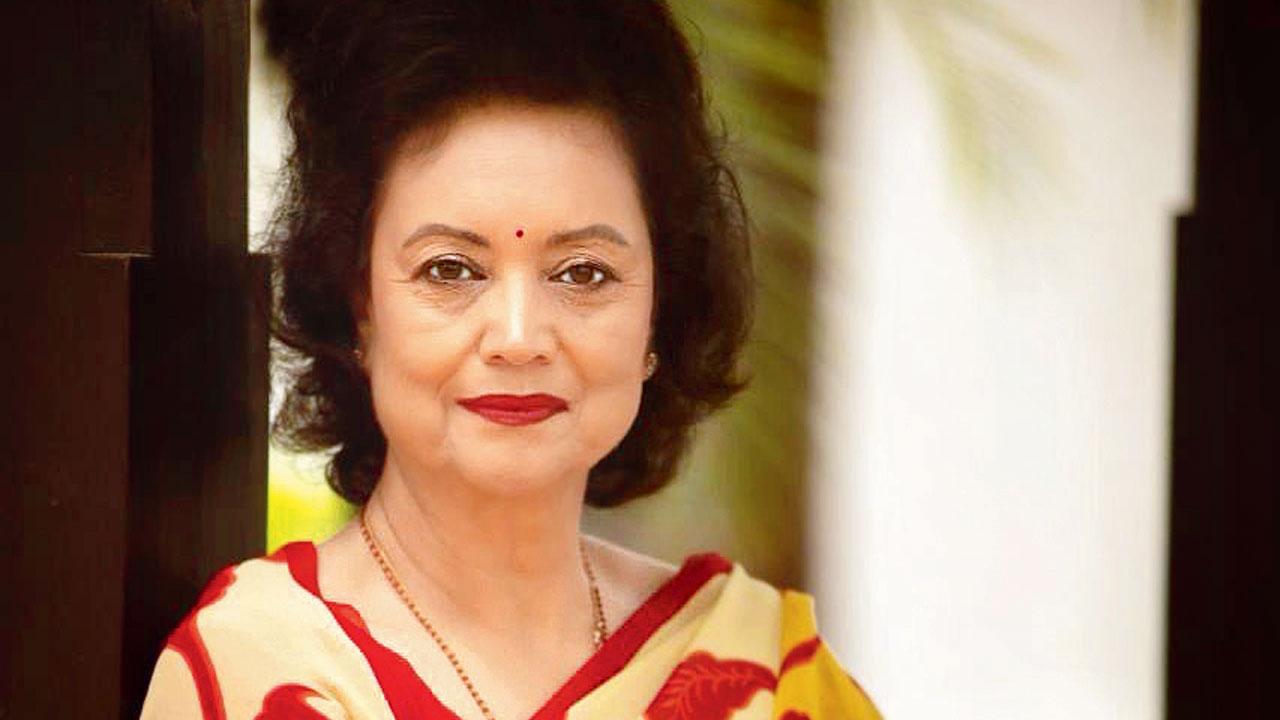
Rohini Rana
For fermentation of soya beans: Roast the soya beans in a thick-bottomed pan for five minutes on low heat, then pressure cook with four cups of hot water for three whistles. Prepare a doko (basket) made of cane, layered with banana, saal or pumpkin leaves. Cool the beans, layer between the leaves, and leave to ferment for three days. Once they start smelling strong and become sticky, lay the beans out and dry them in the sun for later use. You can cook immediately as well.
Method
Heat oil in a pan and add the green chillies, onions and tomatoes; cook till the tomatoes are soft and mushy. Add salt, turmeric powder, two cups of kinema, and boil three cups of hot water in a pressure cooker for four whistles. Once the beans are well cooked and integrated with the other ingredients, the kinema soup is ready to serve. Garnish with coriander and garlic shoots
 Subscribe today by clicking the link and stay updated with the latest news!" Click here!
Subscribe today by clicking the link and stay updated with the latest news!" Click here!










